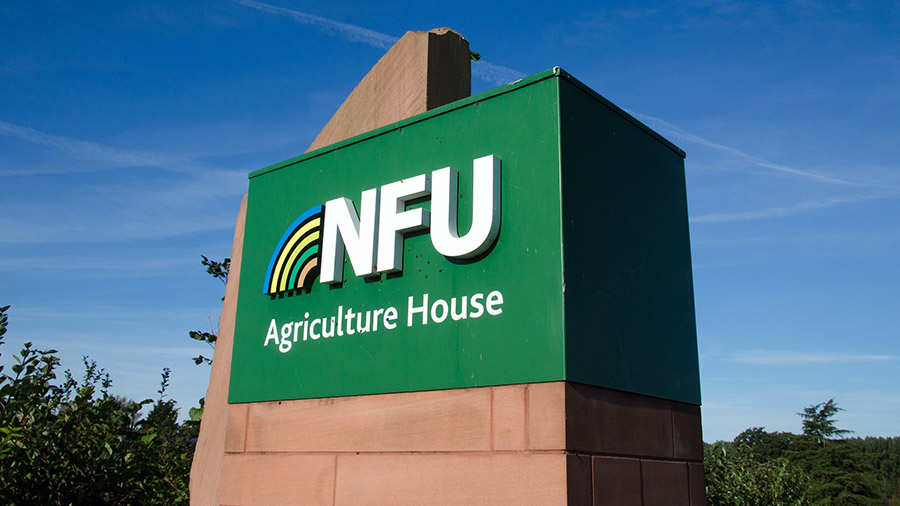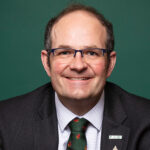Analysis: NFU presidential hopefuls quizzed at online hustings
 © Tim Scrivener
© Tim Scrivener Candidates contesting the top roles at the NFU in England have taken part in a countrywide series of regional hustings.
The hopefuls pitted themselves against each other at five regional hustings last week, starting in Wiltshire and culminating in an online event on Thursday 18 January.
They are battling it out for the top three jobs of president, deputy president and vice-president at the NFU (see panel “Meet the candidates”).
See also: NFU seeks £4bn budget for post-BPS era
Current deputy president Tom Bradshaw is set to succeed Minette Batters in the top job, as he is standing for president unopposed.
David Exwood, the NFU’s current vice-president, has ambitions to become president in the longer term.
This time he is standing for deputy, challenged by Thomas Binns, Rachel Hallos and Michael Oakes, all three of whom are also standing for vice-president.
Matt Culley and Mark Jeffery are in the running for vice-president too.
The need for strong leadership at the NFU, to make the case for British farming, has never been more pressing, as the sector is undergoing some of its biggest changes in more than 70 years under Defra’s agricultural transition.
One prominent NFU member emphasised the importance of the elections, saying: “If the NFU doesn’t get the right top team in place, the government will just walk all over us. They have been ignoring us for a while now.”
Challenging times
The top team that will lead the union over the next two years will need to demonstrate strong and effective leadership to navigate the industry through choppy waters.
External challenges include lobbying Defra to obtain the best deal for farmers under its Environmental Land Management (ELM) programme in England, helping farmers and growers to meet ambitious net zero targets and adapt their businesses to climate change.
There will be internal challenges at the NFU too.
These include: staying relevant to the membership, maintaining headcount by keeping existing members and attracting new ones, finding further cost-savings without affecting services, and improving communications.
One prominent farmer member, who did not wish to be named, said: “For the NFU to survive and prosper, it has to find a way to reach people who just pay their subscription and do not get engaged.
“It’s a bit like buying a gym membership but deciding not to go to the gym.
“The NFU has its critics, but it does so much hard work under the radar and it continues to score important wins for the industry, including winning the case this week for greater compensation for poultry farmers whose flocks suffer AI [avian influenza] outbreaks.”
The media were not invited to any in-person hustings, but were given access to the virtual event.
NFU director general Terry Jones hosted the online hustings, which saw each candidate given three minutes to set out their blueprint for election.
Members then questioned each candidate for seven minutes on topical food and farming issues. The candidates could not hear each other’s responses.
Red Tractor reviews
The NFU has faced flak over its handling of the Red Tractor fiasco, and its plan to introduce a new environmental module, the Greener Farms Commitment, as an optional add-on to its current schemes was a hot topic at the hustings.
Mr Bradshaw said the reviews of Red Tractor and the ability to have an open conversation about what is required from farm assurance were “long overdue”.
“Red Tractor has never been given a mandate by you, the members, to develop beyond food safety and traceability,” he said. “It’s essential that in the wider review of farm-to-fork assurance the voice of the membership is heard and acted upon.”
Mr Exwood said the NFU had not listened sufficiently to members’ views on Red Tractor and the reviews. “We have to do better. We will do better,” he promised.
Food, energy and environment
Members quizzed candidates on how they would balance the requirements of food and energy production with environmental outcomes.
Mr Bradshaw reiterated the NFU’s call for Defra to carry out an assessment of the impact of ELM on food production, which ministers have rejected.
Mr Exwood said the government had legislated to introduce environmental targets, but despite “talking the talk”, had not reciprocated on food security.
Mr Oakes accused policymakers and the government of not learning the lessons from the Covid pandemic and the war in Ukraine, both of which have affected global food supplies.
He said the NFU must work “extremely hard” to keep pushing the food security message.
“I also think the government has got the balance wrong between the environment and food production. We all want to protect the environment, but we all want to do so alongside profitable food production,” he added.
Mr Jeffery said many farmers were keen to enter into Sustainable Farming Incentive (SFI) agreements, but these were a “bit of a risk to food production”.
Public engagement
Members asked the candidates how they would build on the great work NFU president Minette Batters has done to engage with the public and MPs, raising the profile of British farming and the importance of food security.
Mr Jeffery said that if elected, he would put pressure on MPs to agree to minimum food security targets, which is a key ask in the NFU’s manifesto ahead of the general election.
Mr Culley said the NFU should continue to promote its UK food standards campaign, which has attracted more than a million signatures, and take advantage of its presence on social media to spread messaging about British farming.
Mr Exwood said the NFU must be less reactive on social media and look to drive the food and farming agenda instead.
Mr Binns said the NFU churned out a huge amount of information, but “it has work to do” to help members easily access the communications most relevant to their businesses.
Mrs Hallos said the NFU must continue on the path set by Mrs Batters of promoting its Back British Farming and food standards campaigns.
The union must also improve how it delivered its messages to young farmers and grassroots members who were not actively engaged with the union.
Support for uplands
NFU modelling work has shown that the average upland farming business in England could lose 37% of its support payments under the transition to ELM. Candidates were asked what they would do to make the case for hill farmers.
Mrs Hallos said that although the latest SFI offer was “somewhat improved”, she was concerned about the future of landlord-tenant relations on larger upland farm businesses.
But she highlighted other ways for upland farms to drive different income streams, including tourism and flood alleviation measures.
Mr Oakes said it was essential to ensure upland farmers remained supported after the transition and the NFU must work hard to ensure the government recognised the vital part they played in communities.
Elections date
The national officeholder elections will be held in a special meeting of the NFU council after conference at the ICC in Birmingham on 21 February. The results will be announced on NFU Online and social media.
Mr Jones urged members to contact their county representatives who will be attending the meeting, to offer feedback on the hustings and their other experiences of the candidates.
Meet the candidates
Here are the seven candidates in the running for NFU president, deputy president and vice-president.
- David Exwood
- Thomas Binns
- Rachel Hallos
- Michael Oakes
- Matt Culley
- Mark Jeffery
Tom Bradshaw – Running for president (unopposed)
Essex arable farmer Tom Bradshaw, the NFU’s current deputy president, will stand for the position of president unopposed as Minette Batters leaves her role next month.
David Exwood – Running for deputy president
David Exwood manages a mixed farming business south of Horsham in West Sussex. The NFU’s current vice-president, he is hoping to move up the ranks to deputy.
Thomas Binns – Running for deputy and vice-president
Livestock farmer Thomas Binns farms in partnership with his wife on a tenanted upland farm of 750ha, based in the Bowland area of outstanding natural beauty in Lancashire.
Rachel Hallos – Running for deputy and vice-president
Upland beef and sheep farmer Rachel Hallos farms in partnership with her husband and children on a Yorkshire Water tenanted farm in the South Pennines.
Michael Oakes – Running for deputy and vice-president
Worcestershire-based tenant dairy farmer Michael Oakes has worked at the NFU in various roles for more than two decades, including serving as NFU Dairy Board chairman for the past eight years.
Matt Culley – Running for vice-president
Matt Culley farms in partnership with his brother in Hampshire, currently managing 685ha of owned and contract farmed land. He is the current NFU Combinable Crops Board chairman.
Mark Jeffery – Running for vice-president
Mark Jeffery manages 300ha in south Wiltshire in a mixed beef, sheep and arable farming enterprise with his son and his sister, who is employed part-time.
He has worked at the NFU for 10 years and sits on council, and for the past year on the audit committee.
NFU members give verdict on candidates
NFU members who attended the hustings told Farmers Weekly the race for deputy and vice-president was wide open.
One farmer member said David Exwood gave a stronger performance at hustings this time round, but Michael Oakes had also impressed.
“I honestly do not know who I would vote for vice-president,” added the farmer, who did not want to be named.
Another farmer member said Rachel Hallos had stood up well to questioning from members and it would be interesting to see if the NFU retained a female voice on its top team.
How does officeholder election voting work?
The Special Meeting of Council is a closed meeting. Each candidate is allowed to address the council for no more than three minutes.
Only certain members of the council can vote: the “electoral college”. It consists of NFU county chairs, NFU council delegates and the Welsh representatives.
Votes are weighted according to the latest membership income by county. Voting is done by keypad, using the NFU’s electronic voting system.
Any candidates standing for re-election who have already served two successive terms in the same officeholder post can only be re-elected by a special resolution and must gain a majority of not less than three-quarters of the votes cast in person.
No one can hold the same officeholder post for more than six consecutive years (three successive terms) and, following completion of the third term, they cannot be re-elected to the same post for at least four years.







